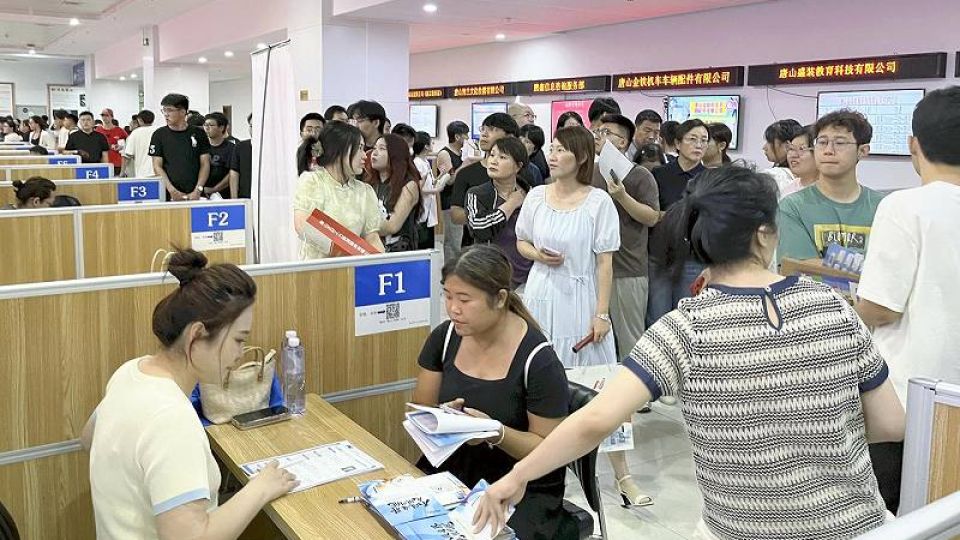September 3, 2025
BEIJING – China’s youth is facing a serious hiring slump.
The country’s prolonged real estate crisis has forced businesses to reduce their number of hires, though the number of university graduates has hit a record high.
A job fair held in late July in Tangshan, Hebei Province, drew large crowds of job-seeking students and their parents. The June-July period is the graduation season for universities in China, with jobs typically starting between July and September. Job hunting begins a year before graduation. However, there were many young people at the job fair who have been unemployed since graduating.
The fair announced that about 80 companies and entities, including electronics and pharmaceutical firms, had prepared over 1,500 job openings. However, one male student in attendance said, “They are all low-paying jobs.”
Yu Xiao Long, 24, who was job hunting in Beijing, sent his resume to about 6,000 companies, mainly IT firms. At one interview, he was told, “You are replaceable,” and was rejected.
Yu finally secured a job in late August but lamented, “There are too many people, which makes the competition too fierce.”
Affected by real estate slump
Youth unemployment remains stubbornly high in China. The National Bureau of Statistics of China reported last month that the July unemployment rate for those aged 16-24 — excluding students — worsened by 3.3 percentage points from the previous month to 17.8%. This significantly exceeds the unemployment rate for all age groups.
The actual situation may be even more severe. After the unemployment rate for the age group hit a record 21.3% in June 2023, the government stopped publishing data. It resumed publication in December 2023, but the rate dropped due to a change in calculation method which excludes job-hunting students.
The job offer rate for students, reported by China’s major online recruitment platform Zhilian Zhaopin, had fallen to 47.8% by mid-April 2024. However, the site has since stopped publishing this data, suggesting the rate may have worsened further.
China’s economy has seen sluggish consumption since the real estate downturn began in 2021. This has spread to manufacturing and finance, leading companies to reduce hires. The government’s tightening of regulations on IT companies, which are popular among students, citing abuse of market dominance, has also significantly impacted the job market. Meanwhile, the number of people with undergraduate or graduate degrees in 2025 is projected to reach a record 12.22 million, up 430,000 from the previous year, further intensifying the employment crisis.
Dissatisfaction spreads online
The government has a growing sense of urgency. At a Politburo meeting chaired by President Xi Jinping in late July, the Communist Party identified employment stability as a top priority for the rest of this year’s economic policy.
Initiatives include dispatching university graduates to rural areas for agricultural and educational support, but the effectiveness remains uncertain. Posts expressing dissatisfaction with the job market have spread on social media.

